A ride-hailing driver uses a charging station in An Nhon ward, Ho Chi Minh City. Photo: DUC TRUNG
Bustling electric vehicles
According to a report from the Vietnam Automobile Manufacturers Association (VAMA), in the first six months of this year, the cumulative sales of electric vehicles by manufacturers (Ford, Toyota, Honda, Suzuki, etc.) and some importers not belonging to VAMA reached 226,500 units, an increase of 70.2% compared to the same period in 2024.
Meanwhile, VinFast has delivered 67,569 electric vehicles in the past six months, accounting for approximately 30% of the total market share. BYD, China's largest electric vehicle manufacturer, has distributed a total of six all-electric models after nearly a year in the Vietnamese market. The Vietnamese electric vehicle market is booming, with tens of thousands of vehicles produced annually. Currently, there are around 300,000 electric vehicles on the road from manufacturers such as BYD, TMT, Hyundai, Wuling, and VinFast.
In the electric motorcycle market, the leading brands are VinFast, Dat Bike, and Selex Motors. In just a short time since entering the market, nearly 3.5 million electric motorcycles are already on the road. These electric motorcycle manufacturers are striving to meet market demand. For example, Selex is developing a strong system of automatic battery swapping stations to provide customers with convenient travel without worrying about running out of battery along the way. Dat Bike focuses on batteries that can achieve speeds of 100 km/h, with a range of nearly 300 km on a single full charge.
In Vietnam, electric vehicle charging infrastructure is developing rapidly, with diverse uses. VinFast has deployed over 150,000 charging stations at rest stops, shopping malls, urban areas, and public charging points in major cities. Other options include charging stations at dealerships and home charging services for vehicle owners, such as EV One and EverCharge public charging stations; and EverEV, GreenCharge, Star Charge, and Autel home charging services.
Charging stations are not meeting demand.
Observations indicate that the charging infrastructure for electric vehicles is insufficient to meet the needs of major cities like Ho Chi Minh City and Hanoi . Currently, the number of public charging stations in Ho Chi Minh City is mainly concentrated in new urban areas, large shopping malls, or service points of electric vehicle manufacturers. Electric vehicle users, especially those with electric cars, often face difficulties in finding convenient charging points, particularly in densely populated residential areas, suburban areas, or old apartment buildings. Many people are forced to run their own power lines to charge their vehicles at home, posing potential electrical safety risks and fire hazards.
A booth displaying electric motorcycles at the Vietbuild 2025 International Exhibition, recently held at Quang Trung Software Park, Ho Chi Minh City. Photo: DUC TRUNG
There are many reasons why the development of charging stations is still limited in Vietnam. Mr. Nguyen Manh Cuong, CEO of Ever EV Charging Station Development Company, believes that electric vehicle charging station developers face several problems such as inadequate electrical infrastructure and uncooperative power providers. Currently, charging station developers do not receive financial support from the government and have to seek funding from investment funds, which is quite difficult.
Ms. Nguyen Ha Ly, Director of Communications at BYD Vietnam, shared that BYD also faced some obstacles in developing its charging infrastructure. Specifically, finding suitable land to deploy public fast-charging stations in major cities is not easy. The approval process and legal requirements for investing in charging station systems are complex, especially those related to fire safety and grid connection. "The market is still evolving, therefore, synchronized coordination between businesses, the government, and charging service providers is needed," Ms. Ly commented.
Meanwhile, regarding electrical system safety risks and the risk of fire and explosion when charging electric vehicles in apartment buildings, according to Mr. Bui Trung Kien, Deputy General Director of Ho Chi Minh City Power Corporation, although the charging power of an electric vehicle such as a bicycle or electric motorbike is not very large (except for electric cars with high charging power), if many vehicles are charging at the same time but the electrical system is not safe, or if low-quality charging equipment and batteries are used, it also poses potential fire and explosion risks, not only in apartment buildings but also in people's homes.
The reason is that the current market has many counterfeit chargers of questionable quality and unknown origin, leading to device malfunctions and fires during use. Furthermore, due to the explosive growth of electric vehicles, many have been in use for many years, resulting in battery quality issues. In particular, the habit of charging vehicles overnight leads to fire and explosion risks that are difficult to detect and address in a timely manner.
Lawyer Tran Minh Hung, Head of Gia Dinh Law Office ( thuộc Ho Chi Minh City Bar Association): The use of electric vehicle charging equipment must comply with national standards.
Article 24 of the 2024 Law on Fire Prevention, Fighting, and Rescue stipulates fire prevention in the installation and use of electricity for domestic and industrial purposes. Accordingly, the installation and use of electricity for domestic purposes must ensure fire safety conditions. Specifically, when connecting electricity to domestic households, electricity retailers must advise on the installation and use of electrical systems and equipment to ensure fire safety.
Only electric vehicle charging equipment that complies with national technical standards may be used; indoor electric vehicle charging areas must have fire safety measures in place; indoor concentrated electric vehicle charging areas must also have fire prevention measures and be equipped with appropriate fire-fighting equipment that meets standards.
In addition, according to point a, Clause 4, Article 12 of Decree 106/2025/ND-CP, the act of not having fire prevention measures for indoor charging areas for electric vehicles will be subject to a fine of 40-50 million VND.
DUC TRUNG
Source: https://www.sggp.org.vn/bung-no-xe-dien-lo-sac-pin-kho-dap-ung-post804647.html


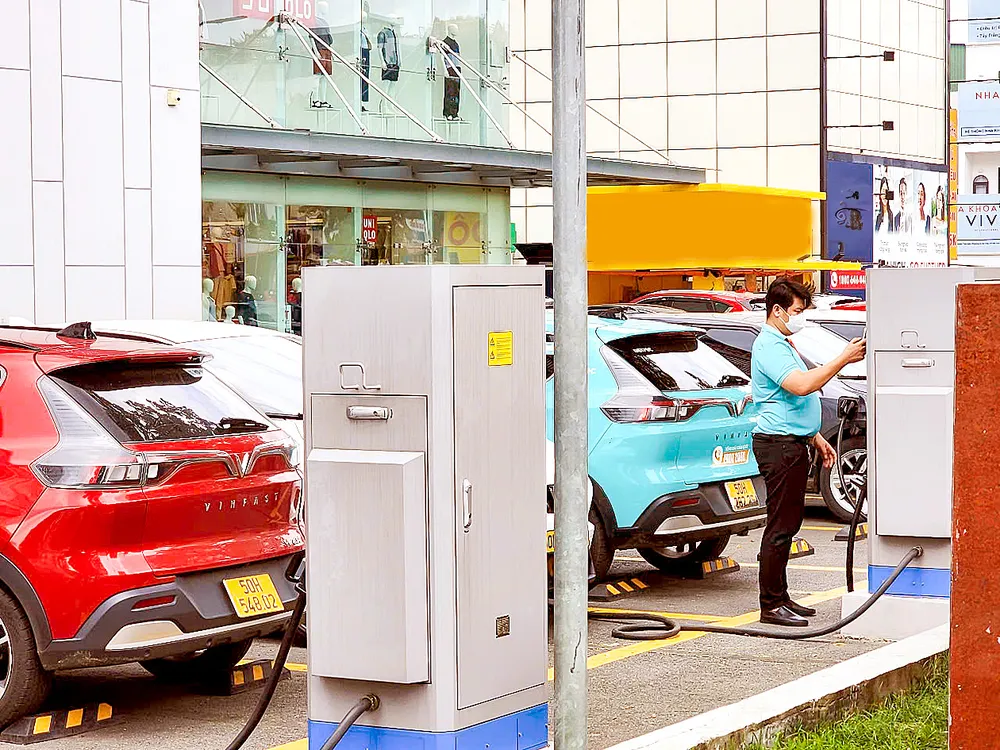
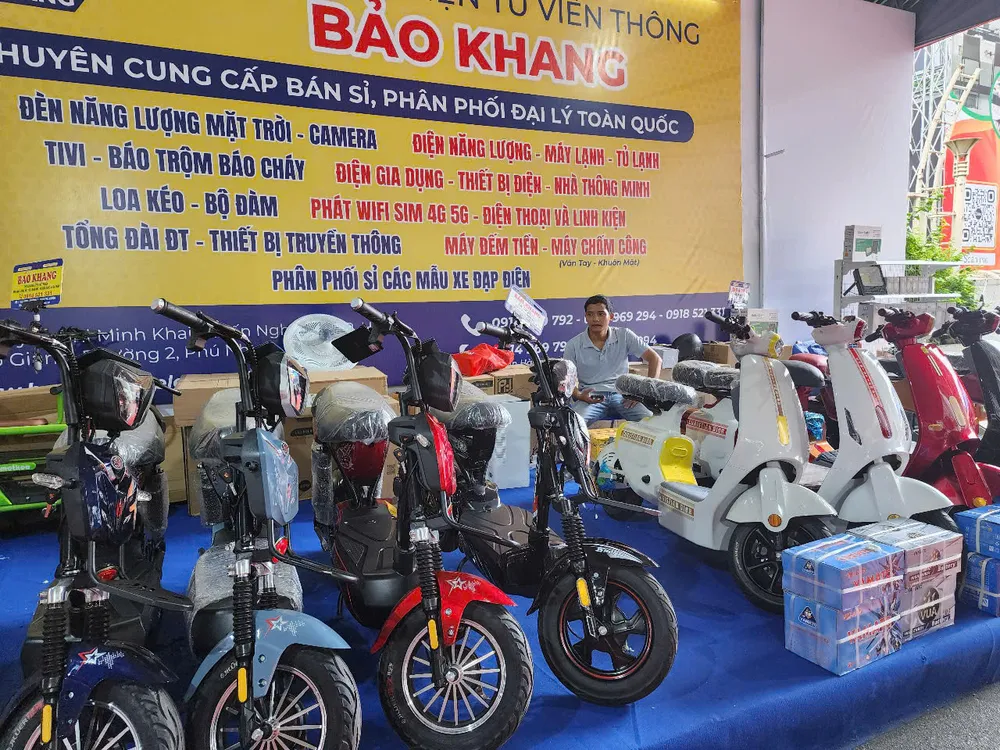





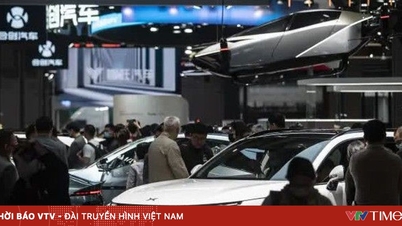

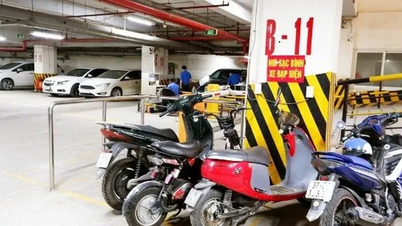
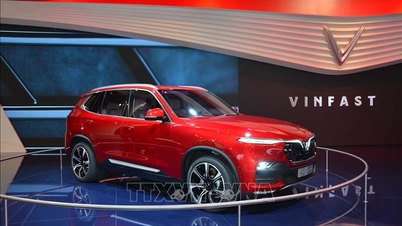


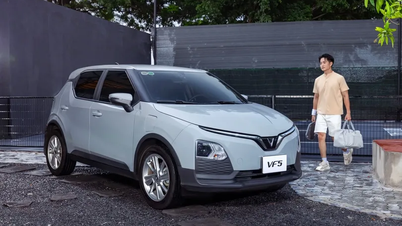



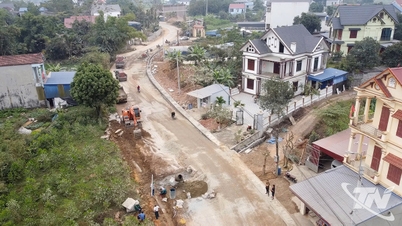




























































































Comment (0)